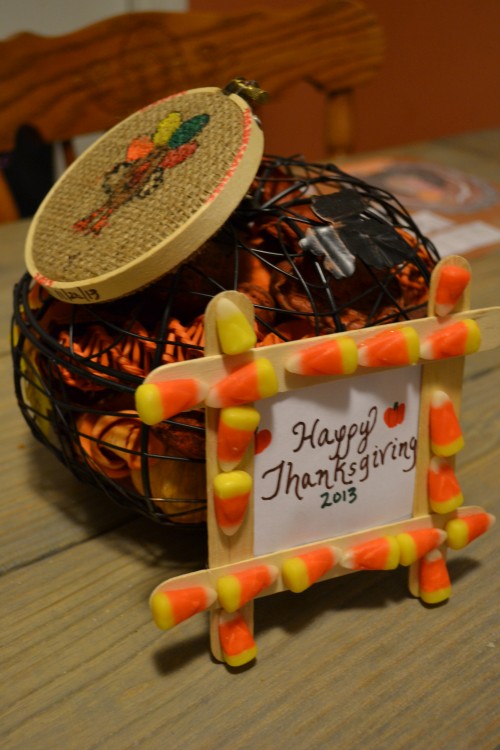Last spring I taught and wrote homework for Beth Moore’s study on Deuteronomy. I was profoundly impacted by Session four, and this post is inspired by everything I learned in that session. Giving Thanks at the Table.
*****
“And there you shall eat before the Lord your God, and you shall rejoice, you and your households, in all that you undertake, in which the Lord your God has blessed you.” Deuteronomy 12:7
Growing up, holidays were the best. As a child, I grew up in a small family. Two parents, two kids, two grandparents, two aunts, two uncles, and only three cousins were the totality of my sphere of people. At my grandmother’s table, who was my dad’s mom, there was me, my sis, mom, dad, Aunt Jane, Uncle Wes, cousin Carrie, and Grandmother and Pa. At my granny’s table, who was my mom’s mom, it was me, my sis, mom, dad, Aunt Joyce, Uncle Jim, cousin Doug, cousin Steve, and Granny, and PaPa.
What I remember most about the holidays was spending time with family. Thanksgiving, in particular, was more than pilgrims and Indians, and freedom in America, though I thought of those things. A spread of food to feed four or five families, chasing cousins around the house, parents napping on the couch, and doting grandparents to hug us, love us, and treat us to a hidden piece of candy or maybe a dollar or two. I have to admit, it was also about the food: creamed corn, turkey, ham, chicken, dressing, green beans, peas, gravy, mashed potatoes, and more.
As an adult, the feasting table has dramatically changed. Several have gone on to be with the Lord, and cousins have new tables to attend, but each year, I gather with others at the table.
Whether we sat at the kid’s table or the adult’s table or said anything more formal in thanks other than the prayer that was always prayed, we were sitting on holy ground. We just didn’t know we were at the time. Maybe the adults knew, but I don’t really think they did.
According to Beth Moore in the Deuteronomy study, “in God’s Deuteronomy-economy, a meal is more than eating. There is a sacredness about the table.”
What is implied by this statement is that every time we pull our chair to the table, we are in the act of doing something holy before the Lord. The table is a place of fellowship – a place to sit, to rest, to relate. It is in fact the equivalent of an altar to the Lord.
According to Joanne Thompson in Table Life, “for Jesus, food was pure blessing neither feared or abused.” We often miss the holiness of the table, because we have such a weird relationship with food today. What about our relationship with food would change if we came knowing that we were eating before Him?
In fact if you were to study scenes with Jesus at the table, you would find them numerous. And feasts? Feasts were always done in a group, in community. Whether it was simply the family unit or a larger context, feasts implied community, and always invited were the alien, foreigner, and stranger.
Think about the table with me. Think of the tables you came to in childhood. Think about going out with co-workers. Think about what happens when you meet around the table with food. Do you recognize the sacredness there?
“In God’s Deuteronomy-economy, to be mindful and thankful is to be joyful.” We are commanded to rejoice. In the midst of the rules and statutes, this command is listed 7 times.
In “One Thousand Gifts” by Ann Voskamp, she argues that giving thanks makes one joyful. That in giving thanks and in listing things you are thankful for, you change. Listen to what she says,
The gift list is thinking upon His goodness – and this, this pleases Him most! And most profits my own soul and I am beginning, only beginning to know of it. If clinging to His goodness is the highest form of prayer, then this seeing His goodness with pen, with a shutter, with a word of thanks, these really are the most sacred acts conceivable. The ones anyone can conceive, anywhere, in the midst of anything. Eucharisteo takes us into His love. I am struck and I long chime: Daniel is only a man of prayer because he is a man of thanks, and the only way to be a woman of prayer is to be a woman of thanks. And not sporadic, general thanks, but three times a day eucharisteo. Was it the power of everyday thanksgiving prayer that shut the mouths of the lions ravenous? Lions would count as hard eucharisteo.
Do you see what is happening here? God is commanding the people to eat before Him, to rejoice, to be mindful of the blessings. In doing so, community flourishes, loves grows, and the body is united as one. The table and the act of coming together to it becomes a time to worship the Lord. Our presence there is pleasing to Him.
This sacred act is intended to draw in the wayward and the outcast. We are called to be hospitable. We need to practice inviting people to our tables.
So let this Thanksgiving be the marker in which you realize that the table is sacred. Marvel in the holy moments you have with family. Invite those experiencing the holiday alone to your table. If you are not able to invite someone without family to your table this year, remember to make it a part of your table life next holiday, and always always know that every meal is an opportunity for the ordinary to meet the sacred.





Leave a Reply